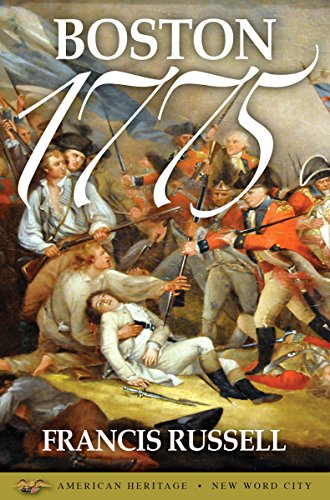
By Francis Russell
Herb Boyd's Black Detroit: A People's History of Self-Determination PDF
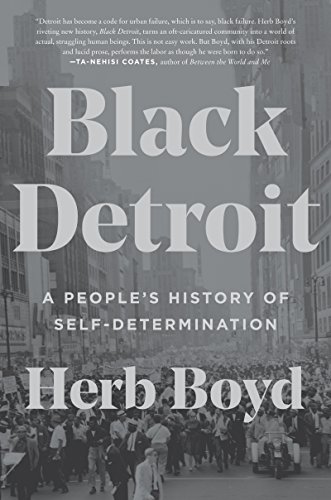
By Herb Boyd
The writer of Baldwin’s Harlem seems to be on the evolving tradition, politics, economics, and non secular lifetime of Detroit—a combination of memoir, love letter, heritage, and clear-eyed reportage that explores the city’s prior, current, and destiny and its value to the African American legacy and the nation’s fabric.
Herb Boyd moved to Detroit in 1943, as race riots have been engulfing the town. although he didn't take hold of their complete value on the time, this severe second will be one of the he witnessed that might mould his political activism and uncovered a urban stressed for swap. In Black Detroit, he displays on his existence and this landmark position, looking for figuring out why Detroit is a different position for black humans.
Boyd finds how Black Detroiters have been in demand within the city’s old, groundbreaking union flow and—when given an opportunity—were one of the tireless staff who made the auto the guts of yank undefined. good paying jobs on meeting traces allowed operating category Black Detroiters to ascend to the center type and accomplish monetary balance, an accomplishment infrequently possible in different industries.
Boyd makes transparent that whereas lots of those middle-class jobs have disappeared, decimating the inhabitants and hitting blacks toughest, Detroit survives due to the emergence of businesses corresponding to Shinola—which symbolize the energy of the Motor urban and and its persisted significance to the rustic. He additionally brings into concentration the foremost figures who've outlined and formed Detroit, together with William Lambert, the nice abolitionist, Berry Gordy, the founding father of Motown, Coleman younger, the city’s first black mayor, diva songstress Aretha Franklin, Malcolm X, and Ralphe Bunche, winner of the Nobel Peace Prize.
With a gorgeous eye for aspect and keenness for Detroit, Boyd celebrates the tune, production, politics, and tradition that make it an American original.
Get Dallas, North Carolina: A Brief History PDF
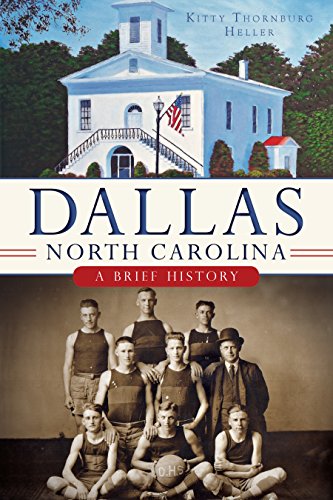
By Kitty Thornburg Heller
Download PDF by Louis Filler: The Crusade Against Slavery: 1830-1860
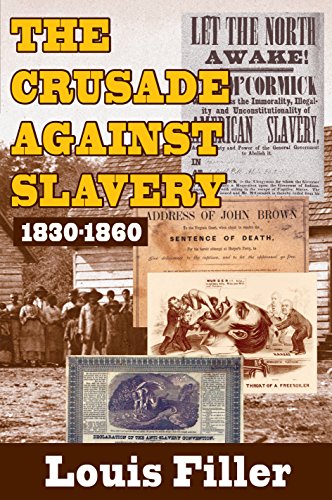
By Louis Filler
A Disease in the Public Mind: A New Understanding of Why We - download pdf or read online
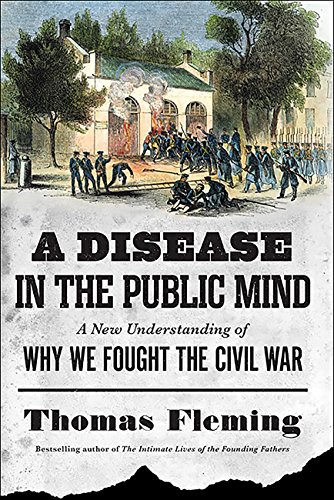
By Thomas Fleming
Download e-book for kindle: The Truth About Selma: What Happened When the Cameras Left by Paul Kersey

By Paul Kersey
Every 12 months, elected officers on the federal and kingdom point besides celebrities, make the pilgrimage to now eighty% black Selma, Alabama to recreate the famed march around the Edmund Pettus Bridge.
Paying homage to the Civil Rights fight, this march is very publicized and promoted by way of the mainstream media, Hollywood and public faculties to provide greatest volumes of white guilt throughout the United States, reminding them they have to ceaselessly compensate for their ancestors inequities.
But as soon as the cameras go away and the marching ends, what is still in the back of within the urban of Selma, thoroughly ruled by means of black elected/appointed officers is a reminder of the collective fears the architects of Jim Crow and restrictive covenants lengthy held for his or her posterity.
"The fact approximately Selma" presents the truth of what the Civil Rights fight really dropped at the city.
New PDF release: John Sevier: Tennessee's First Hero
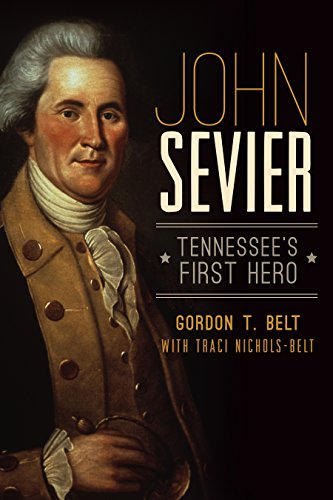
By Gordon T. Belt,Traci Nichols-Belt
Carleton Young's Voices From the Attic: The Williamstown Boys in the Civil PDF
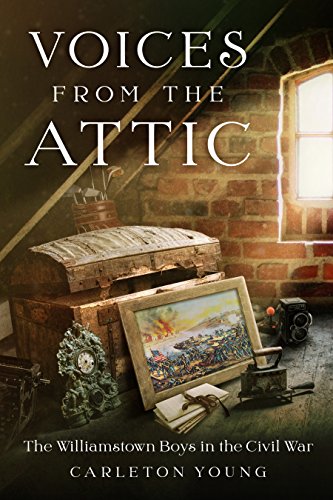
By Carleton Young
Get Finding Octave: The Untold Story of Two Creole Families and PDF
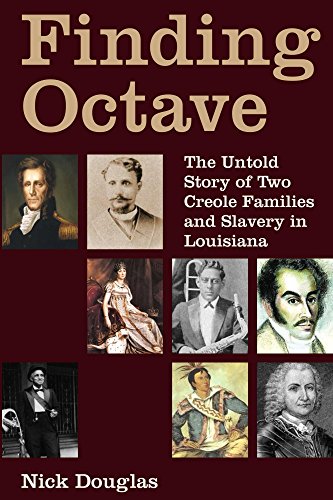
By Nick Douglas
Finding Octave finds an American background erased and forgotten, even by way of descendants of these who lived it. It tells of ancestors who prompted the flowering of jazz, the beginning of the fifteenth modification, the affection lifetime of an empress and the legacy of Simon Bolivar—and a landmark conflict to overturn segregation.
And it tells the tale of Octave Pavageau, the fashionable, French-speaking father of 8 whose historical past ended in either hurtful elitism and path-breaking activism.
In discovering Octave, we discover Basil Crocker, mathematician, builder, and dandy. A grasp swordsman in a time of accelerating white hostility and assaults, Crocker grew to become New Orleans’ so much sought-after fencing teacher. Emile Angeletty, a black Catholic in Mississippi, resisted a Church plan to segregate worshippers. He and different Catholics all started the Holy kinfolk Parish in Natchez, and upheld extra tolerant practices. Adele Pavageau was once a brand new Orleans land wealthy person, Octave’s aunt, and a world businesswoman.
This isn't really one other American historical past of black slaves and dominant whites. discovering Octave reveals an the US the place “free humans of color”—unfettered blacks, Indians and Creoles—had strength and wealth that whites struggled to say as their very own. during this pre-Civil struggle the United States, blacks negotiated their very own freedom from slavery. a few selected to be slaveholders themselves. Confronting the poor fact approximately slavery inside his relatives, the writer uncovers an American mystery.
Born of the concord of alternative worlds and peoples, Octave’s Creole legacy is a resource of putting up with power. His relations have been convinced global electorate, and pleased with their ancestry. They travelled broadly, carried out overseas alternate, and outlined themselves as black, white or Creole because it perfect them. They gravitated to urban existence, forming collaborative city networks that infused New Orleans with creative innovators, dynamic marketers, an array of social prone, and crusades for social swap.
Join the writer of discovering Octave to find “the power, middle and tenacity of my ancestors and folks of colour, the power and resolution necessary to what the United States nonetheless can be.”
Download e-book for kindle: Liberation Historiography: African American Writers and the by John Ernest
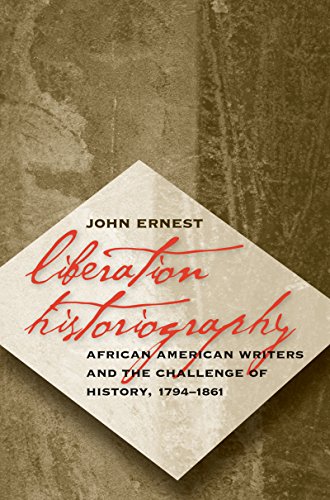
By John Ernest
Ernest reviews quite a few cultural kinds together with orations, books, pamphlets, autobiographical narratives, and black press articles. He exhibits how writers equivalent to Martin R. Delany, David Walker, Frederick Douglass, William Wells Brown, and Harriet Jacobs crafted their texts with a view to resituate their readers in a newly expected neighborhood of religion and ethical responsibility. Antebellum African American old illustration, Ernest concludes, was once either a analyzing of resource fabric on black lives and an unreading of white nationalist background via an act of ethical imagination.